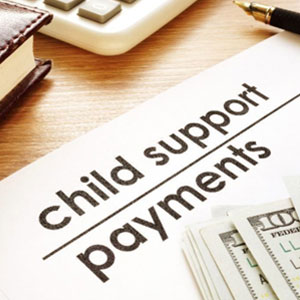 Child Support Guidelines
Child Support Guidelines
Child support issues in an Alabama divorce are governed by the State’s Child Support Guidelines Act, commonly known as Rule 32 in the code. This act establishes a formula for calculating child support payments, taking into account the combined income of the parents and the number of children requiring support.
Various factors are considered when making the calculation, including each parent’s income, childcare costs, health insurance premiums, and other relevant expenses. Typically, the parent who does not have primary physical custody of the child is responsible for making child support payments to the custodial parent. The payment amount is determined as a percentage of the non-custodial parent’s income, with adjustments for specific expenses and deviations allowed in some instances.
The primary purpose of child support in Alabama is to ensure that the child’s financial needs are met. Adhering to these guidelines is vital to providing for the child’s well-being and maintaining financial support that aligns with their best interests.
Child Support During The Divorce Process
Child support can be initiated during the divorce process in Alabama, typically as part of temporary orders called pendente lite relief. While the divorce is pending, a parent may request temporary child support to ensure that the financial needs of the child are met during the transition. The court can issue these orders relatively quickly, often within weeks of the request. It takes into account the income and financial circumstances of both parents.
Temporary child support serves as financial assistance for the child’s well-being until the final divorce decree is issued and a permanent child support order is established. The specific timeline of child support deliberations can vary based on the complexity of the case and the court’s scheduling. The court’s primary concern is to ensure that the child’s needs are addressed promptly, even while the divorce is ongoing.
Child support in Alabama typically continues until a child reaches the age of majority, which is 19 years old. Many people wrongly think it’s 18 years of age, but this is not the case. Child support can end earlier if the child becomes emancipated through marriage or other legal means, such as joining the military or becoming self-supporting.
Child support can also be extended beyond the age majority if the child has special needs or disabilities that require ongoing support and care. Additionally, child support orders may include provisions for college expenses in certain circumstances. The specific duration of child support varies based on the individual circumstances of the case and the terms outlined in the court order.
Other Considerations And Possible Deviations
In Alabama, child support is not automatically ordered in every custody case, although courts typically favor it, and parents may need to provide justification for not providing it. The decision to order child support hinges on various factors, including the financial circumstances of the parents, the custody arrangement, and the specific needs of the child.
Child support is typically ordered when one parent has primary physical custody and the other parent has visitation or joint custody. However, the court may deviate from the standard child support guidelines under certain circumstances. Deviations can occur in cases of shared custody arrangements where both parents significantly contribute to the child’s expenses, if the child has extraordinary medical or educational needs, or if a parent’s income surpasses the guideline’s limits.
The court may approve a deviation if both parents mutually agree to a different support amount and it is deemed in the best interest of the child. These deviations are granted to ensure that child support orders align with the unique circumstances and best interests of the child. The flexibility in the system allows for tailored solutions that prioritize the well-being of the child.
Influence On Child Support
A parent paying child support generally does not have direct control or input as to how the funds they pay are to be used. Alabama courts consider the child support payments as belonging not to the parent receiving the funds but to the child. Therefore, even though the custodial parent has the authority to spend it, legally speaking, it is deemed the child’s property.
Child support payments are intended to cover the child’s basic needs, including food, shelter, clothing, education, and medical care, and are typically paid to the custodial parent or legal guardian. The receiving parent is responsible for allocating these funds to meet the child’s needs.
If there are legitimate concerns or disputes about how the child support is being utilized, the paying parent can seek legal remedy. The court may investigate such matters and take appropriate action if it finds funds are not being used for the child’s benefit. Both parents need to prioritize their child’s well-being and, if necessary, work with a legal professional to address any concerns about how child support is being managed.
Modifying Child Support Orders
To pursue a modification to a child support order in Alabama, several crucial factors must be present. The most important among these is a significant and material change in circumstances since the issuance of the existing child support order. Such changes could include:
- A substantial change in either parent’s income;
- Changes in the child’s needs;
- Relocation;
- Changes in custody or visitation arrangements; or,
- The passage of a significant period (typically exceeding three years).
Demonstrating that the change is substantial enough to warrant a modification and that it directly impacts the child’s best interest is of utmost importance. Additionally, any modification request must align with the child support guidelines established by Alabama law.
Parents seeking a modification should engage with an experienced family law attorney, thoroughly assess their situation, and determine if the necessary factors are present to pursue a change in the support order. Legal guidance ensures that the modification process is conducted in accordance with the law and in the best interest of the child involved.
For more information on Child Support Issues In An Alabama Divorce, a free initial consultation is your next best step. Get the information and legal answers you are seeking by calling (256) 321-5176 today.

